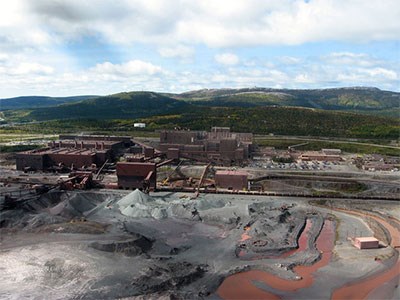With an eye on fostering growth in the natural resource sector, the Quebec government is committing $19.2 million towards a feasibility study for a rail line to reach its remote iron ore deposits in the Labrador Trough.
As part of last week’s unveiling of the provincial budget, the new Liberal government is rebooting its Plan Nord.
Plan Nord was introduced in 2011 as an ambitious strategy to develop the province's 1.2 million square kilometres. Its aim was to develop the province's mining, forestry, energy and tourism resources for an area containing 63 communities and 120,000 people, less than two per cent of the province's population.
Millions were earmarked to be spent in infrastructure developments, housing, health care and education.
Under a new Liberal regime, the government is re-establishing a special coordinating body – Société du Plan Nord – made up of regional representatives, First Nations, industry and government.
This year’s budget also includes the creation of the Capital Mines Hydrocarbures fund to acquire equity stakes in mining, oil and gas companies so all Quebecers get a direct share of the profits from resource extraction.
For the forestry sector, $570 million is dedicated to silvicultural work, forest development and management. A further $20 million is earmarked over three years to forestry companies and cooperatives for equipment renewal, and a new $20-million fund is being set up to develop the forest biomass sector.
The government said the current mining tax regime will be maintained.
In his remarks, finance minister Carlos Leitão’s said that “every necessary effort will be made to create wealth and jobs and ensure Quebecers reap the benefits of an enviable social model. We will provide more support to businesses, particularly SMEs (small and medium-sized enterprises), we will capitalize on our natural resources, we will implement the maritime strategy, we will relaunch the Plan Nord and we will continue to invest in our infrastructure.”
The government has set deficit reduction targets of $3.1 billion in 2013–2014 and $2.35 billion in 2014–2015 with the aim on achieving a balanced budget by 2015–2016.




